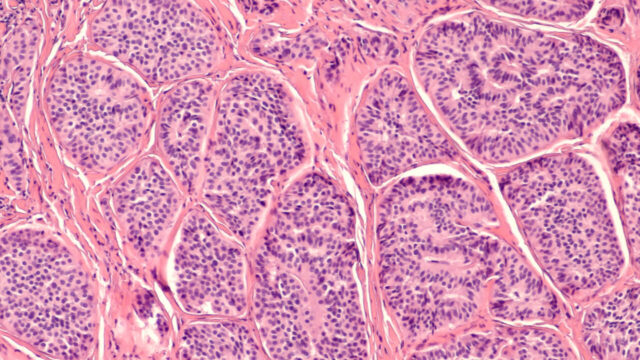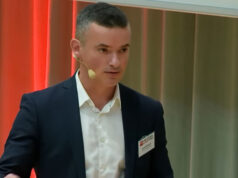
Elicera om den positiva kliniska effekten i cancerstudien
Elicera Therapeutics medverkade nyligen på Oncolytic Virotherapy Summit i Boston, där immunonkologibolaget presenterade positiva data gällande ELC-100. Klinisk aktivitet i form av minskning av metastaser har nu observerats hos totalt två av åtta utvärderade patienter, vilket ger visst stöd för kandidatens potential i neuroendokrina tumörer (NET). BioStock pratade med Eliceras medgrundare Di Yu för att få veta mer om de nyligen presenterade resultaten.
Göteborgsbaserade Elicera Therapeutics utvecklar nästa generations cell- och genterapier som grundar sig på CAR T-celler och onkolytiska virus. I dagsläget har bolaget fyra läkemedelskandidater i pipeline – två inom området CAR T-celler (ELC-301 och ELC-401) och två som baseras på onkolytiska virus (ELC-201 och ELC-100).
Bolaget har även en egenutvecklad och kommersiellt tillgänglig plattformsteknologi, iTANK, som syftar till att optimera immunförsvaret vid cancerbehandling genom att aktivera patienternas egna mördar-T-celler. iTANK är tillämpad på bolagets två CAR T-cellsbaserade kandidater samt på ELC-201 som utgör nästa generationens onkolytiska virus, vilket möjliggör en bred parallell attack på cancercellerna.
Positiva data presenterade vid Oncolytic Virotherapy Summit
Bolaget medverkade i förra veckan vid Oncolytic Virotherapy Summit i Boston, ett av de ledande forumen inom terapier med onkolytiska virus. Här möts såväl mindre bioteknikbolag som stora globala läkemedelsjättar i syfte att bl.a. utforska den senaste forskningen inom fältet. Vid eventet presenterade Elicera data gällande dess längst framskridna kandidat, ELC-100, som befinner sig i en fas I/IIa-studie med indikationen neuroendokrina tumörer (NET).
Datan demonstrerar att en andra patient svarat på behandlingen med en observerad reduktion av tumörer, denna gång i studiens tredje kohort. Den första patienten med kliniska signaler på tumörminskning observerades i studiens första kohort med den lägsta dosnivån. Totalt innebär detta att kliniska signaler observerats hos totalt två av åtta hittills utvärderade patienter. I och med att detta har skett redan i fas I-delen av studien, där doseskaleringsfasen äger rum med det primära målet att ta reda på behandlingens säkerhet och maximala tolererbara dos, ser bolaget de nya observationerna som mycket uppmuntrande. Vd Jamal El-Mosleh kommenterade den nya datan i ett pressmeddelande:
”Det är naturligtvis för tidigt att dra några slutsatser kring effekt men vi ser det som mycket uppmuntrande att det nu finns tydliga signaler på klinisk aktivitet i två av åtta hittills utvärderade patienter redan i doseskaleringsfasen av studien.”
Fas I-delen består av fyra dosnivåer där tre patienter ingår i varje nivå, och därmed beräknas totalt tolv patienter ingå i studien. Bolaget presenterade även i samband med de positiva kliniska signalerna att inga dosbegränsande allvarliga biverkningar kunde ses i den andra kohorten. För den tredje kohorten beräknar Elicera att säkerhetsdata kommer att ske under Q1 2023 medan den fulla effektrapporteringen från ELC-100 kan komma tidigast under 2023.
Medgrundare kommenterar
BioStock hörde av sig till Elicera Therapeutics medgrundare och utvecklingschef Di Yu för att få veta mer om de presenterade resultaten.
Why did you choose to communicate these results and can you comment any more on them?

– Elicera’s oncolytic virus candidate, ELC-100, which is in an ongoing phase I/IIa study, is in the most advanced development stage in our pipeline. We therefore wanted to provide the scientific and investor community in attendance at the 7th Oncolytic Virotherapy Summit with the most up to date information about our assets. Since we were presenting new clinical data, we were required to disclose this information to the capital market as well. With regards to further comment, it is too early to tell but we are encouraged by these signals and look forward to additional analysis of all the patient cohorts during the coming months.
Tell us more about ELC-100 and the medical need it seeks to address.
– Elicera’s oncolytic virus ELC-100 is a genetically modified adenovirus, optimized to selectively kill NET cells and leave healthy cells alone. It has also been designed to specifically not replicate in liver cells as the treatment is administered in the liver artery to better target liver metastases. ELC-100 is thus expected to achieve a tumor-killing effect in NET cells and at the same time set in motion a long-term, systematic immune response to attack cancer cells in other parts of the body.
With regards to the medical need, NETs can be found basically anywhere in the body, but occur primarily in the gastrointestinal tract, lungs and pancreas. Approximately 450,000 people were living with NETs in 2017 in the US, Japan, France, Germany, England, Italy and Spain, and the number of patients diagnosed with this type of tumor is expected to increase. So we see a substantial medical need for new types of treatment.
What is the therapeutic potential of oncolytic viruses?
– Oncolytic viruses have significant potential to contribute to new therapies within the field of immuno-oncology. By genetically modifying oncolytic viruses they can selectively infect and kill tumor cells while leaving normal cells intact. At the same time they induce a potent anti-tumoral T-cell response that proactively infiltrates tumors and attacks cancer cells in other parts of the body. OV’s therefore have the potential to convert an immunologically “cold” tumor with few tumor-reactive T-cells into a “hot” tumor with increased T-cell infiltration. Oncolytic viruses can also be genetically modified, or armed, with different transgenes that for example can code for additional immune stimulating substances. In ELC-201, we arm the drug candidate both with the iTANK-platform and with another transgene that codes for 4-1BBL to further stimulate T-cells against cancer.
Innehållet i BioStocks nyheter och analyser är oberoende men BioStocks verksamhet är i viss mån finansierad av bolag i branschen. Detta inlägg avser ett bolag som BioStock erhållit finansiering från.


